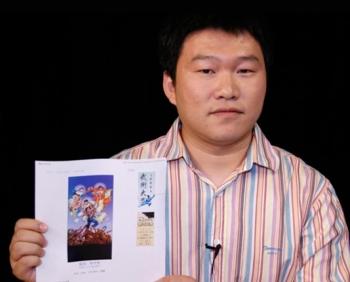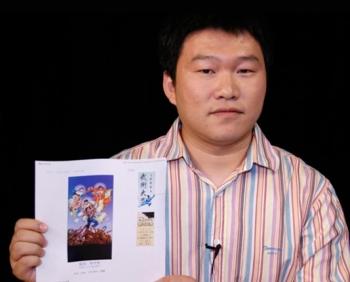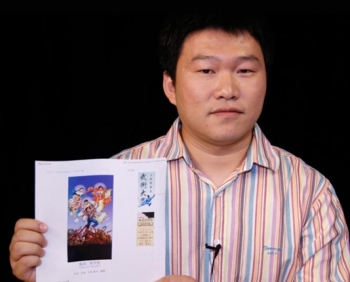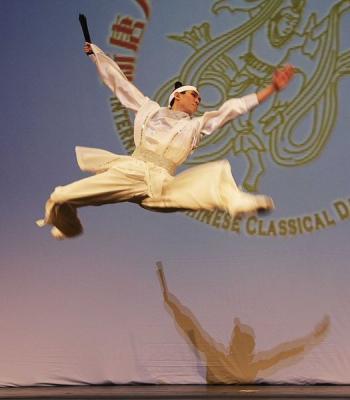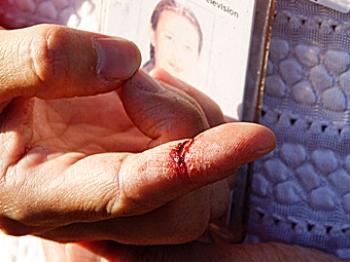Once named the “King of Cartoons,” Guo Jingxiong was compelled to leave China just before the Beijing Olympics. Guo is the founder of the “Flag” cartoon and a Falun Gong practitioner. Guo feared that if he remained in China he might be arrested and persecuted.
The Chinese Communist Party (CCP) outlawed Falun Gong in 1999, and has since waged a brutal persecution against the group. The persecution has been intensified in the run-up to the Olympics.
Earlier this week, Guo spoke with The Epoch Times about the course of his artistic career and his life in New York.
Recognition and Awards
“My father wanted me to learn Beijing opera, but after watching an opera I started to draw,” said Guo, whose father was an architect.
After graduating from the Art Design Department of the Jilin Fine Art Institute, Guo was assigned to the Jilin Daily newspaper as an editor and reporter on account of his excellent writing skills. Later, he worked at the Jilin Fine Art Institute as a visiting professor of the College of Modern Media.
Guo’s Flag Cartoon Creation Alliance was founded at the end of 1999. Initially Guo and several others set up shop in a tiny office not more than ten square meters. After a few tough years, the studio became highly productive and began gaining recognition.
In 2002 alone, the studio published more than 70 volumes with an average monthly production of more than 1,200 drafts.
It was in 2002 that “Comical Liazhai” (Liazhai is a legendary book of ghost stories in China) won the gold medal of the Stame Cup in the National Animation Competition held by Chinese Central Television and Shanghai People’s Fine Art Publisher.
Guo was awarded the top prize in the Angouleme International Animation and Sequential Art Festival in France in 2006. He was the first Chinese to win this prize and he signed a contract with Europe’s largest animation publisher.
Road to Enlightenment
Back in college, Guo had waist-long hair and picked fights when drunk, holding nothing but disdain for the world. Guo says he is a completely different person now.
“At that time, the Chinese animation was affected by Japan and the western world. Individualism was prevalent, and artists’ thinking tended to go extremes,” said Guo. “I felt empty and lonely; I wanted to break though the pain and search for the meaning and value of life.”
He began studying western philosophy, along with Taoism, Lauze, Zhuangzi, Buddhism, and the Zen Sect.
“I started to look for the road to enlightenment. I was very fortunate to get to know Falun Gong and have become a simple and steadfast practitioner,” Guo said.
He started practicing Falun Gong in 1996, and says that over the years he has benefited from the practice both physically and spiritually.
